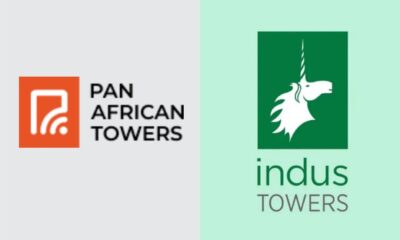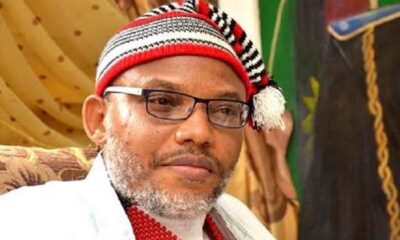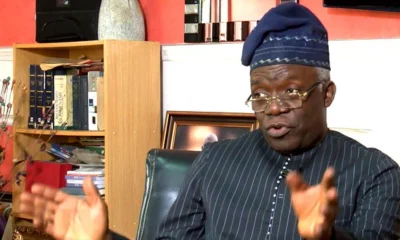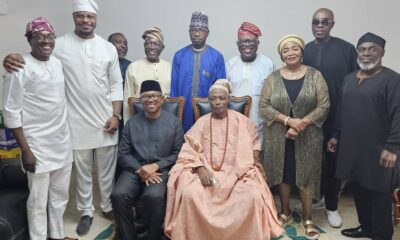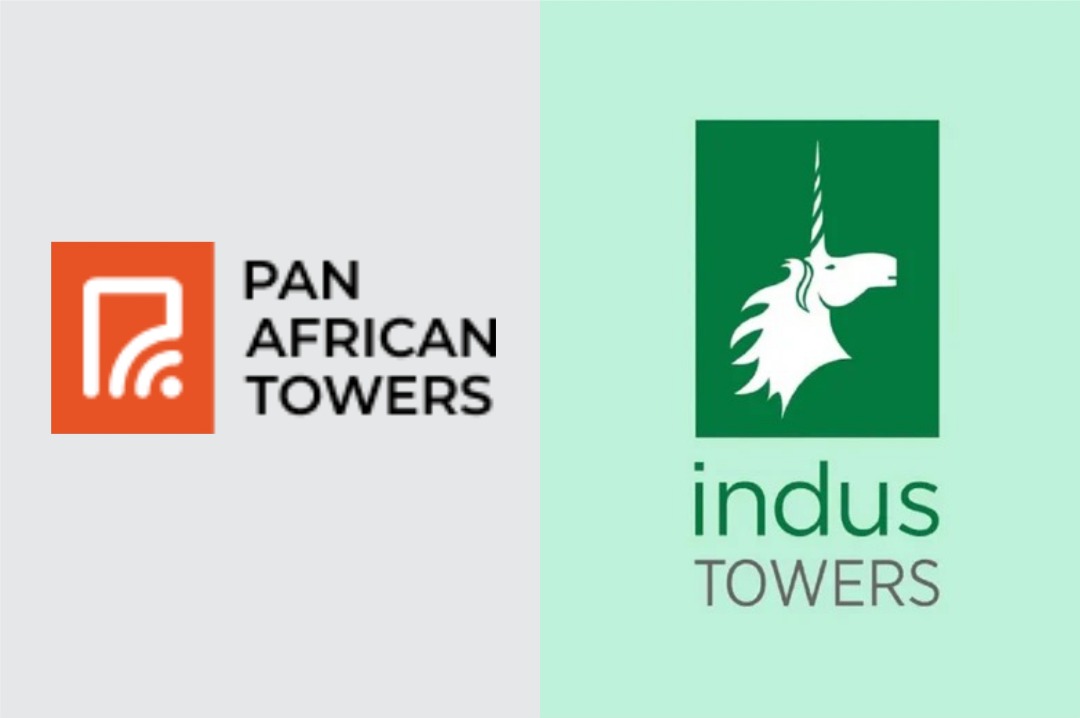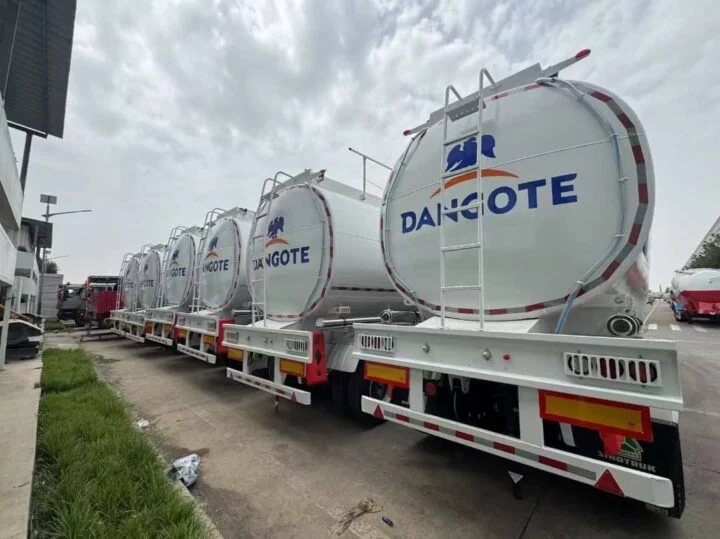The Nigerian Communications Commission has approved a 50 percent increase in call tariffs, which could raise the average cost of calls to N16.5 per minute.
Based on national telephone traffic data from 2023, this hike might generate over N6.74tn in revenue for telecom operators in 2025, assuming call volumes remain steady, which means Nigerians could pay this amount to the companies.
However, this estimate excludes the effects of free and discounted call promotions, which may affect the actual revenue.
An analysis from the 2023 Subscriber/Network Performance Report by the NCC showed that in 2023, total outgoing telephone traffic was 205.3 billion minutes, while incoming traffic was 203.2 billion minutes.
The report states, “As of December 2023 total outgoing Local and National Traffic was 205,298,114,995.11 minutes while Total incoming Local and National Traffic was 203,187,588,876.00 minutes. MTN had the highest total outgoing and incoming Traffic of 122,667,600,437.00 and 123,762,501,615.00 minutes respectively in 2023.”
This means that Nigerians spent approximately 408.5 billion minutes making local calls in 2023.
Since no fresh data for 2024 is available, this analysis is based on the 2023 data, which may change in 2025.
Our analysis also does not include international calls, even though Nigerians spent 1.5 billion minutes on them in 2023, according to the NCC.
Further analysis revealed that MTN led the market, with 122.7 billion minutes of outgoing traffic and 123.8 billion minutes of incoming traffic.
At the new rate of N16.5 per minute, MTN’s combined revenue from outgoing and incoming calls is projected to exceed N4tn, making it the biggest beneficiary of the tariff hike, representing over 60 percent of the total market revenue.
Airtel is expected to follow with around N1.78tn in projected revenue due to its strong share of both outgoing and incoming traffic.
Glo, the third-largest operator, is expected to generate N536.2bn.
Smaller operators, such as Smile and Ntel, are projected to earn N5.7bn and N13.1bn respectively, reflecting their minimal market impact.
9mobile (EMTS) is expected to generate around N105.6bn from its traffic volumes.
The projected N6.74tn in revenue highlights the substantial effect of the tariff hike.
Outgoing calls alone are expected to bring in N3.28tn, while incoming calls will contribute around N3.23tn.
Despite the rise of data services and over-the-top messaging platforms, voice calls continue to be a major revenue source for telecom operators.
MTN’s dominance in both outgoing and incoming traffic underscores its leadership in the sector, with Airtel and Glo following as significant contributors.
On the other hand, smaller operators are facing difficulties, with limited market penetration and a smaller customer base affecting their revenue potential.
According to The Punch, the 50 percent tariff increase approved by the NCC will likely raise the average cost of an SMS to N6, substantially boosting telecom operators’ revenue.
Based on the 2023 SMS traffic data, the projected revenue for 2025 could surpass N137.84bn, assuming traffic remains stable.
According to the NCC’s 2023 annual report, 22.97 billion SMS were sent and received in 2023, a decline of 11.38 percent from 25.92 billion in 2022.
MTN accounted for the highest SMS traffic, with 8.21 billion sent messages and 8.57 billion received, totaling 16.79 billion SMS.
With the revised N6 per SMS tariff, MTN is expected to earn approximately N100.72bn, making it the largest beneficiary of the hike.
MTN’s share of SMS traffic represents over 73 percent of the total market, solidifying its dominant position in the sector.
Airtel is expected to generate N26.26bn from its SMS traffic of 4.38 billion, which includes 2.01 billion sent and 2.37 billion received.
This accounts for 19 percent of the projected industry-wide earnings. Glo, with a total of 1.35 billion SMS, is expected to earn N8.10bn, representing 5.88 percent of the total revenue.
Meanwhile, smaller operators such as EMTS and Smile are expected to see modest revenues.
EMTS, with 458 million SMS, is projected to earn N2.75bn, while Smile, which recorded just 1.2 million SMS, is expected to generate N7.36m.
Together, these smaller players contribute less than two percent of the total projected revenue for 2025.
The telecom sector is projected to earn N137.84bn from SMS in 2025, driven by the tariff increase.
However, the new pricing may alter consumer behavior, as more Nigerians might shift to over-the-top messaging platforms like WhatsApp and Telegram, which offer free alternatives.
The Nigerian Communications Commission approved the 50 percent tariff hike for telecom operators due to rising operational costs and prevailing market conditions.
In a statement released on Monday, Reuben Muoka, NCC’s Director of Public Affairs, explained that the decision was made under the NCC’s regulatory powers as defined by Section 108 of the Nigerian Communications Act, 2003.
The approved adjustment is considerably lower than the over 100 percent increase initially requested by some network operators.
The NCC clarified that the decision was carefully designed to balance the increasing costs faced by operators while protecting consumers from excessive price hikes.
The adjustment will strictly follow the tariff bands established in the NCC’s 2013 Cost Study and the new Guidance on Tariff Simplification, 2024.
The statement read, “The Nigerian Communications Commission, pursuant to its power under Section 108 of the Nigerian Communications Act, 2003 to regulate and approve tariff rates and charges by telecommunications operators, will be granting approval for tariff adjustment requests by Network Operators in response to prevailing market conditions.
“The adjustment, capped at a maximum of 50 per cent of current tariffs, though lower than the over 100 per cent requested by some network operators, was arrived at taking into account ongoing industry reforms that will positively influence sustainability.
“These adjustments will remain within the tariff bands stipulated in the 2013 NCC Cost Study, and requests will be reviewed on a case-by-case basis as is the Commission’s standard practice for tariff reviews. It will be implemented in strict adherence to the recently issued NCC Guidance on Tariff Simplification, 2024.”
The commission pointed out that tariff rates had remained unchanged since 2013, despite inflation and rising operational costs that have strained the telecom industry.
The adjustment is expected to bridge this gap, enabling operators to invest in infrastructure and innovation while maintaining service quality for consumers.
The NCC emphasized that the changes would improve network quality, customer service, and connectivity coverage.
According to the statement, extensive consultations with both public and private stakeholders guided the decision.
The NCC assured that the adjustments would be transparent, with operators required to educate consumers on the new rates and ensure measurable service improvements.
The statement concluded, “As a regulator, the NCC will continue to engage with stakeholders to create a telecommunications environment that works for everyone—one that protects consumers, supports operators, and sustains the ecosystem that drives connectivity across the nation.”
The Minister of Communications, Innovation, and Digital Economy, Bosun Tijani, revealed in a recent TV appearance that telecom operators had pushed for a 100 percent tariff increase, while the government was considering a hike of between 30 and 60 percent.
“It should not be more than anywhere between 30 per cent to 60 per cent,” he said, acknowledging that the proposed increase was less than what operators had requested.
With the approved 50 percent increase, the average cost of phone calls will likely rise from N11 to N16.5 per minute, SMS charges will increase from N4 to N6, and the cost of 1GB of data will increase from N350 to N525.
The President of the National Association of Telecoms Subscribers, Adeolu Ogunbanjo, has rejected the imposition of a new duty on the telecom sector, warning that it would worsen the taxation burden and negatively impact Nigerians.
“There was no agreement reached at the meeting with stakeholders,” Ogunbanjo said. “We presented our case, but nothing concrete was resolved during the meeting with the NCC in Abuja.”
The association has vowed to take legal action if the proposed duty is implemented without addressing subscribers’ concerns.
Ogunbanjo noted that while the association might accept a tariff increase of 5 to 10 percent, anything beyond that would be unacceptable.
“If this new duty is implemented, we will take the matter to court. This kind of policy cannot stand,” he declared.
He suggested alternative funding mechanisms for telecom operators, such as raising capital through Initial Public Offerings.
“Let Nigerians be part of the business by buying shares. MTN has already gone public, and others can follow. This way, operators can raise funds without overburdening subscribers,” he said.
Ogunbanjo also highlighted the critical role the telecom sector plays in Nigeria’s economy, noting its contribution to foreign direct investment and GDP growth.
“Apart from oil, telecommunications is the only sector attracting significant investment. We cannot allow policies that will collapse the industry,” he stated.
He appealed to the minister to reconsider policies that could further impoverish Nigerians, citing poor electricity and economic conditions as ongoing challenges.
“A 50 percent increase will cripple Nigerians. We will not accept this. A moderate increase is enough, and operators should explore other ways to generate funds,” Ogunbanjo insisted.
The Association of Telephone, Cable TV, and Internet Subscribers of Nigeria stated that with such an increase in tariff, there is a need for significant improvements in service quality.
President of the consumer group, Sina Bilesanmi told The Punch that the regulators including the NCC, and the minister were part of a virtual meeting in the morning where the decision for tariff hike was made.
Bilesanmi stated that the new tariff is to be implemented in February and warned that service providers must enhance their infrastructure and service quality within two weeks of the rollout.
“If we don’t see tangible improvements, we will take legal action against the telcos, the NCC, and the Federal Government,” he said.
The association’s support for the adjustment was driven by several factors, including the need to prevent the telecom sector from collapsing and to foster economic growth.
However, Bilesanmi made it clear that their acceptance is contingent on improved service delivery. “We urge our members to accept the tariff adjustment, but only if it results in better service. Otherwise, we will hold the authorities accountable,” he added.
Acknowledging the pressure in making the decision, Bilesanmi noted that stakeholders argued that rejecting the hike could lead to a shutdown of services. “I don’t want to be seen as an enemy of the economy,” he stated.
As February approaches, the association said it will closely monitor developments and remains committed to protecting consumer interests through all available legal means if service quality falls short of expectations.
Credit: The Punch

 BIG STORY18 hours ago
BIG STORY18 hours ago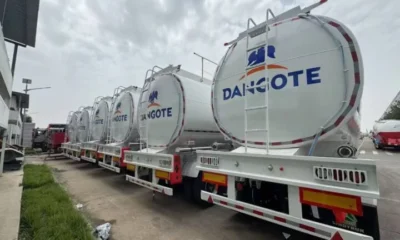
 BIG STORY4 days ago
BIG STORY4 days ago
 BIG STORY4 days ago
BIG STORY4 days ago
 BIG STORY4 days ago
BIG STORY4 days ago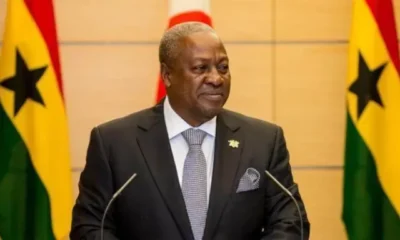
 BIG STORY5 days ago
BIG STORY5 days ago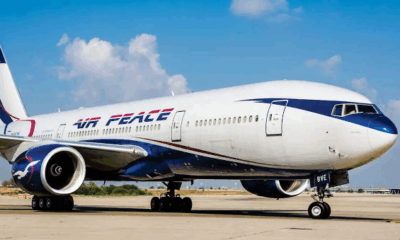
 BIG STORY4 days ago
BIG STORY4 days ago
 BIG STORY5 days ago
BIG STORY5 days ago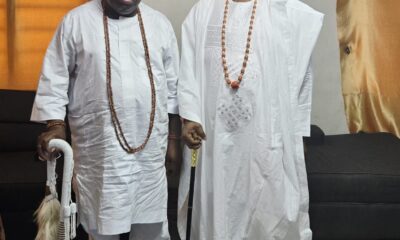
 BIG STORY3 days ago
BIG STORY3 days ago







